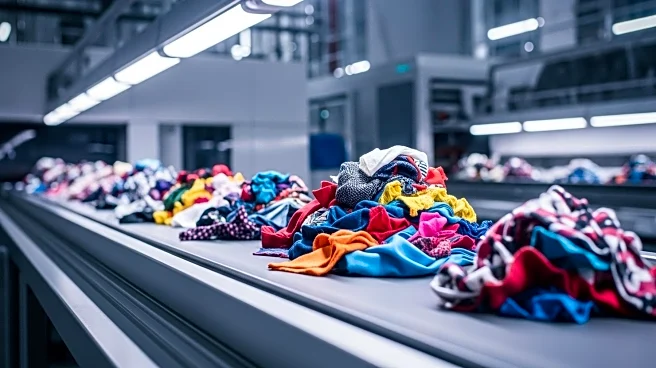What is the story about?
What's Happening?
The European Parliament has approved new regulations requiring fashion brands to cover the costs associated with textile waste management. These rules mandate the establishment of Extended Producer Responsibility (EPR) schemes, making brands financially responsible for the collection, sorting, reuse, and recycling of textile products. The regulation aims to address the environmental impact of fast fashion, with companies like Shein and Temu potentially facing higher fees due to their rapid production models. The move is part of a broader effort to scale textile recycling infrastructure in Europe, with initiatives like ReHubs planning strategies to support a circular textile sector.
Why It's Important?
The new EU regulations represent a significant shift in how the fashion industry is held accountable for its environmental impact. By imposing financial responsibilities on brands, the EU is encouraging more sustainable practices and potentially reducing textile waste. This could lead to increased costs for fast fashion companies, prompting them to reconsider their production models and invest in sustainable alternatives. The regulations may also inspire similar policies in other regions, influencing global fashion industry standards and practices. As brands adapt to these changes, they may focus more on sustainability, potentially reshaping consumer expectations and industry norms.















